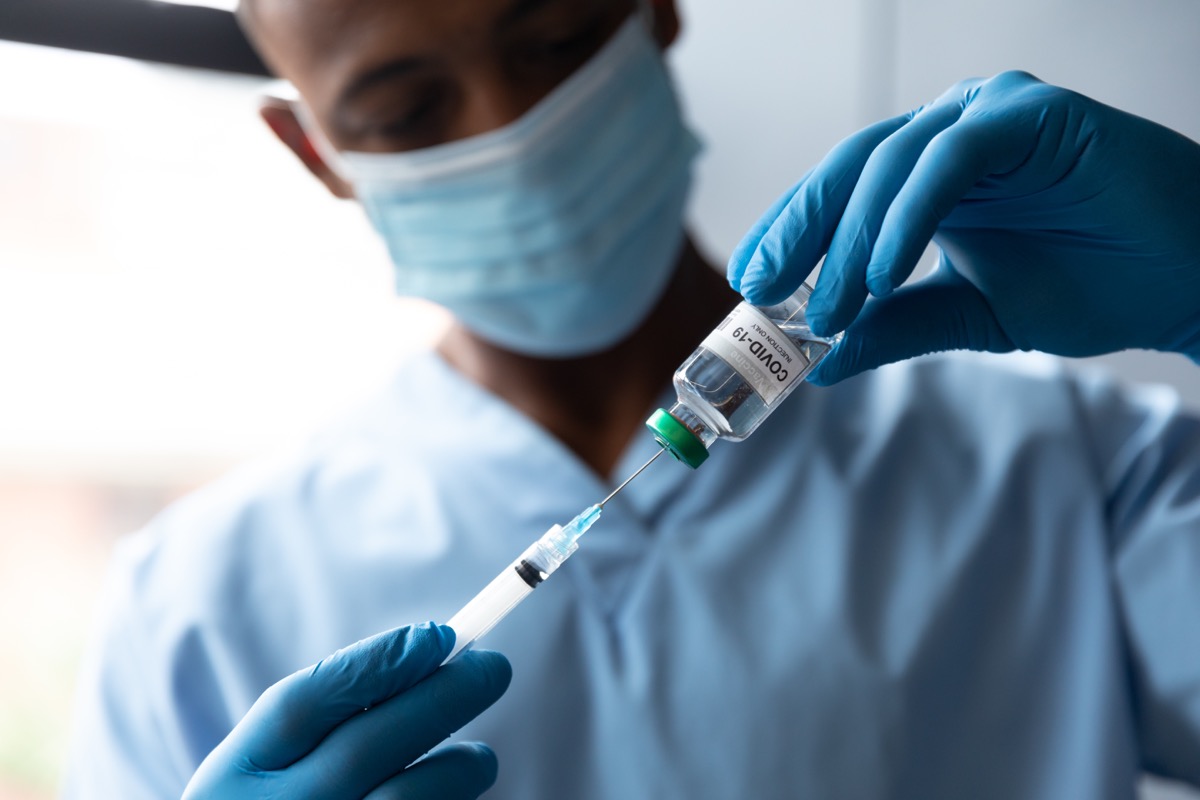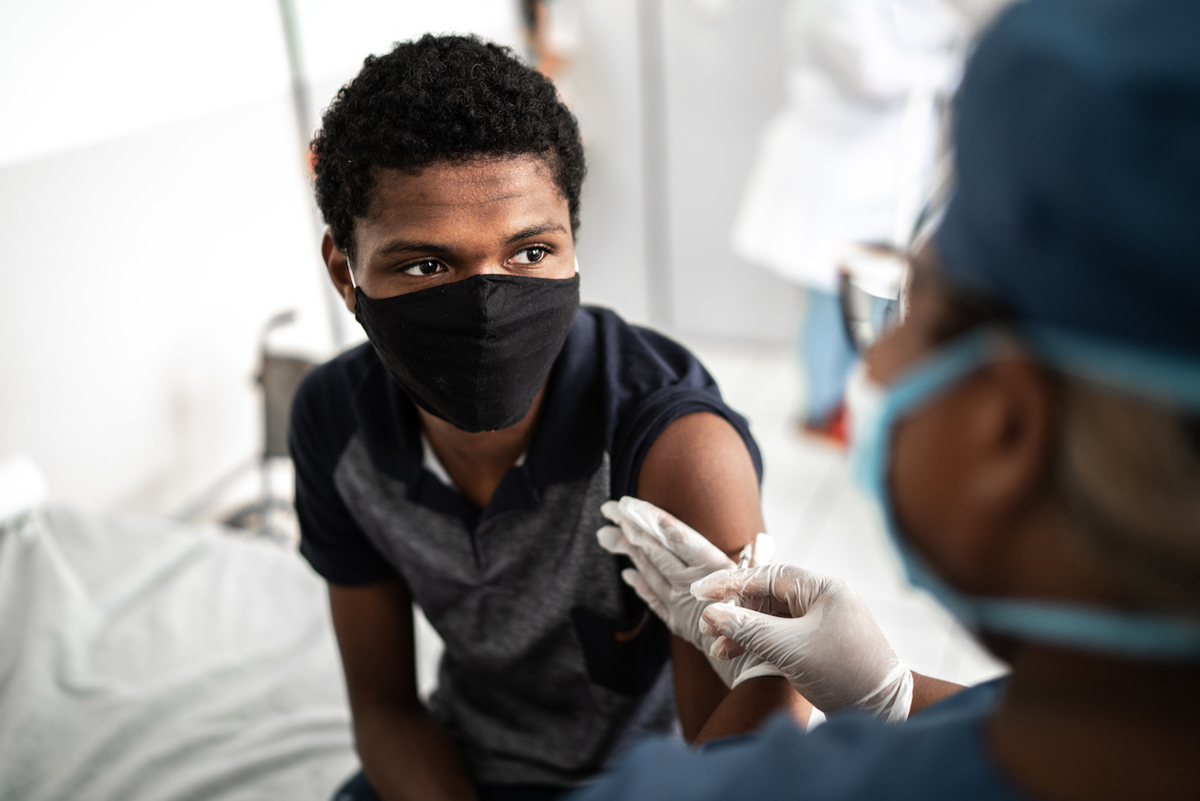During the Feb. 17 White House COVID response team briefing, Fauci took the time to address a COVID vaccine question he’s often asked: “We do know now that we have a 94 to 95 percent efficacy in preventing clinically recognizable disease, but the looming question is: If a person gets infected, despite the fact that they’ve been vaccinated—we refer to that as a ‘breakthrough infection’—does that person have the capability of transmitting the infection to another person? Namely, does vaccine prevent transmission?“ae0fcc31ae342fd3a1346ebb1f342fcb Now, Fauci said there have been some recent discoveries that suggest the vaccine might be able to do just that. “What has happened over the past couple of weeks is there have been some studies that are pointing into a very favorable direction that will have to be verified and corroborated by other studies,” he said. Read on to find out what the new research says, and for more up-to-date COVID news delivered straight to your inbox, sign up for our daily newsletter. Fauci cited a study that was shared on Feb. 8 on medRxiv, which suggested that people vaccinated in Israel have significantly reduced viral loads. “When you follow breakthrough infections in the individuals in Israel who had been vaccinated, compared to infections in individuals who were not, there was a markedly diminished viral load in those individuals who were vaccinated but had a breakthrough infection, compared to individuals who were not,” Fauci pointed out. To see where you may experience discomfort from the shot, check out Dr. Fauci Said He Had Pain in These 2 Places After the COVID Vaccine. Fauci also cited a study published in The Lancet on Feb. 2 that supports the idea that “the lower the viral load, the less likelihood of transmissibility; the higher the viral load, the higher the likelihood of transmissibility,” he explained. The study found that patients with higher viral loads—the quantity of virus measured—in their nasal pharynx were more likely to develop symptoms, get sick faster, and infect more people. According to the study, those with higher viral loads have a one in four chance of infecting others, while people with lower viral loads have only a one in eight chance of transmitting the virus to someone they come in contact with. The results of the study suggest “that the viral load, rather than symptoms, might be the predominant driver of transmission.” For more from Fauci, check out Dr. Fauci Says These Are the COVID Symptoms That Don’t Go Away. The former study suggests that vaccinated people have lower viral loads if they do get a breakthrough infection, and the latter study suggests people with lower viral loads spread the virus less—which means that the more vaccinated people we have walking around, the less likely COVID is to spread. Fauci said that scientific data is starting to “point to the fact that vaccine is important not only for the health of the individual, but it also has very important implications from a public health standpoint for interfering and diminishing the dynamics of the outbreak.” To see what side effects you should expect once you get your shots, check out The CDC Says These 3 Side Effects Mean Your Vaccine Is Working.



